
-
Find the right food for your petTake this quiz to see which food may be the best for your furry friend.Find the right food for your petTake this quiz to see which food may be the best for your furry friend.Featured products
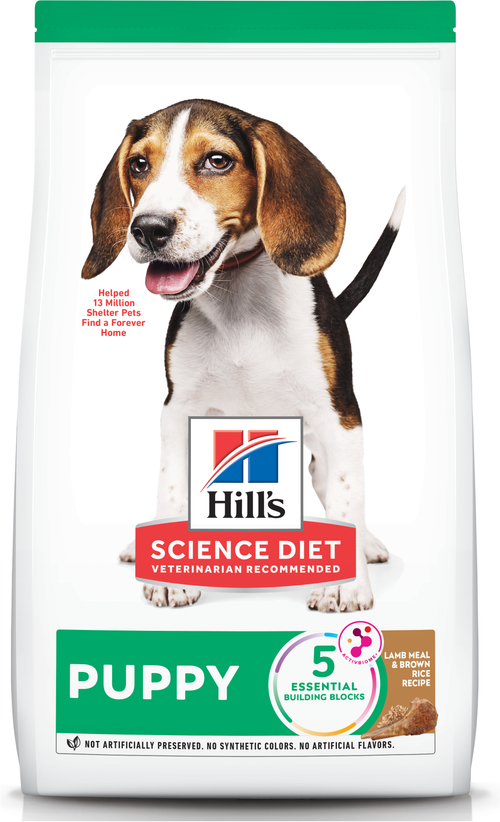 Puppy Lamb Meal & Brown Rice Recipe
Puppy Lamb Meal & Brown Rice RecipeVital nutrients to support 5 essential building blocks for lifelong health
Shop Now Hill's Science Diet Adult 7+ Senior Vitality Small & Mini Chicken & Rice Recipe Dog Food
Hill's Science Diet Adult 7+ Senior Vitality Small & Mini Chicken & Rice Recipe Dog FoodImproves everyday ability to get up & go
Shop Now Puppy Large Breed Chicken & Brown Rice Recipe
Puppy Large Breed Chicken & Brown Rice RecipeVital nutrients to support 5 essential building blocks for lifelong health
Shop NowFeatured products Adult Indoor Chicken Recipe Cat Food
Adult Indoor Chicken Recipe Cat FoodSupports energy level and beautiful fur in indoor cats
Shop Now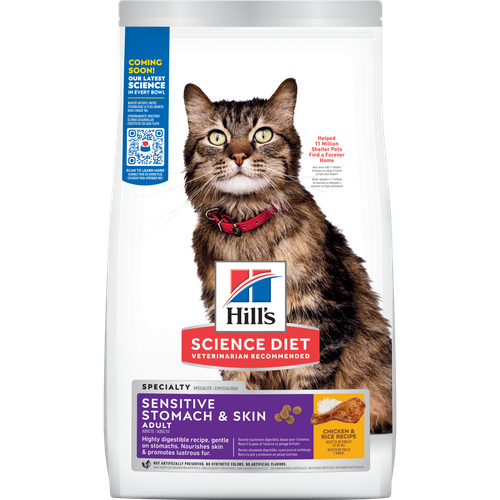 Adult Sensitive Stomach & Skin Cat Food
Adult Sensitive Stomach & Skin Cat FoodHighly digestible food that is gentle on the stomach. Nourishes skin & promotes lustrous fur.
Shop Now Adult 7+ Chicken Recipe Cat Food
Adult 7+ Chicken Recipe Cat FoodSupports energy level and beautiful fur in mature cats
Shop Now -
Dog
- Dog Tips & Articles
-
Health Category
- Weight
- Food & Environmental Sensitivities
- Urinary
- Digestive
- Joint
- Kidney
-
Life Stage
- Puppy Nutrition
- Adult Nutrition
Cat- Cat Tips & Articles
-
Health Category
- Weight
- Skin & Food Sensitivities
- Urinary
- Digestive
- Kidney
-
Life Stage
- Adult Nutrition
Featured articles Pet Food Storage Tips
Pet Food Storage TipsDiscover how and where to store your dry, as well as canned, dog and cat food. Learn how to find the "best before" dates on all Hill's pet food packaging.
Read More The Incredible Science Behind Your Pet's Microbiome
The Incredible Science Behind Your Pet's MicrobiomeLearn what a pet's microbiome is, how it contributes to your pet's gut & overall health, and why nutrition is important in maintaining healthy microbiomes.
Read More Water
WaterDiscover why water is the most important nutrient for your dog or cat to live a healthy life. Find out how much water your pet should consume each day.
Read More -


Dogs make a variety of sounds to express different wants, needs and feelings, but a dog's howl, in particular, is unmistakable. The reason for his howling, on the other hand, is typically less clear. So why exactly does a dog howl? We've got the lowdown.
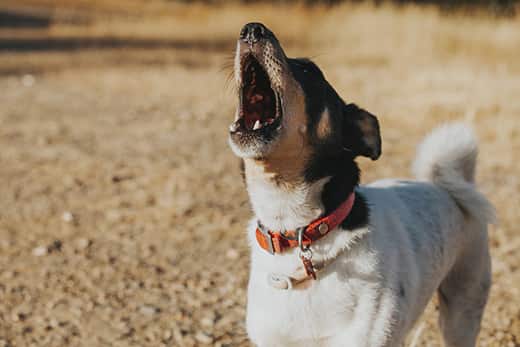
Why Do Dogs Howl?
Howling is a deeply ingrained behavior. A dog's howl, similar to a wolf's, is a loud, drawn-out, mournful cry. It differs from a bark, which is typically brief and explosive.
A dog may howl for some of the same reasons wolves do. However, as dogs have evolved and grown closer to humans, some of their reasons for howling may have also evolved. Here are several reasons why your dog might howl:
- To signal to the pack: Like wolves, dogs howl to help members of the pack find their way back home, says Dogster. This is not only true of wild dogs who run in actual packs, but also domestic dogs who view their human family and caretakers as their pack. This may explain why your pooch howls when you or another family member has been away from home for a while.
- To ward off predators and announce their territory: Dogs use howling to announce to rival dogs and potential threats that territory belongs to them and to keep away. This might be why one howling dog can trigger every dog in the neighborhood to start howling — they're all sounding off to let each other know who occupies which territory.
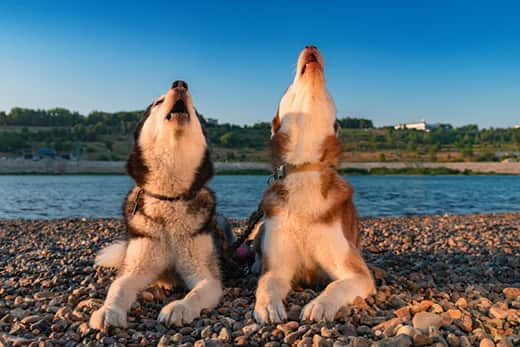 As a response to noise: Your dog may howl in response to a nearby siren, a musical instrument, a sound on the television or your own singing. While this may mean he's protesting because he dislikes the noise, it could just as easily mean he likes it and wants to join in!
As a response to noise: Your dog may howl in response to a nearby siren, a musical instrument, a sound on the television or your own singing. While this may mean he's protesting because he dislikes the noise, it could just as easily mean he likes it and wants to join in!- To express emotional pain: Dogs may howl to express fear, anxiety or sadness, and to signal their desire for comfort, says Rover. Dogs with separation anxiety often howl when their caretakers leave them alone.
- To express physical pain: Likewise, dogs in physical pain or discomfort may howl to let their caretakers know they need attention. If the reason for your dog's howling is unclear, it's a good idea to check him out for signs of dog pain. If he continues howling and you can't figure out why, reach out to your veterinarian.
You'll also probably notice that your dog likes to tilt his head to the sky to let out this vocalization. There are a variety of reasons why dogs will tilt their heads, but there is little information on why dogs might "howl at the moon." Many people speculate that this is because it straightens out the vocal cords and provides more airflow from the chest to allow them to provide this type of vocalization. Others speculate that it allows the sound waves to travel further, allowing more dogs or creatures know they are there.


Tasty Tips
Dogs Most Likely to Howl
While howling is common among all dogs, some breeds are more likely to howl than others, says Dogster. Those more likely to howl include several hound breeds, including dachshunds, beagles, basset hounds and bloodhounds, as well as huskies, Alaskan malamutes and American Eskimo dogs.
Dogs may also howl more as they get older — this is especially true of senior dogs who become confused due to dementia or loss of vision or hearing, says Rover.
Training a Dog Not to Howl
Because dogs might howl for a number of reasons, training them to not howl varies. In cases of pain or direct result of a noise, the howling is probably infrequent enough that training is not necessary. But if your dog is great at inciting the rest of the neighborhood into a howling chorus at night, you may want to train them. Because howling is a behavioral trait, it may take more time to teach them to stop howling. Never discipline a dog that howls because dogs rarely understand why they are in trouble. Instead, reward his good behavior — in this case, when he stops howling give him lots of love or the occasional treat. You can also redirect his attention to something more productive when he begins to howl.
So, why do dogs howl? It turns out there are a plethora of reasons. One thing seems certain, though: When your pup howls, it often simply means he wants your attention!


Jean Marie Bauhaus is a pet parent, pet blogger, and novelist from Tulsa, Oklahoma, where she usually writes under the supervision of a lapful of fur babies.
Related products

Improves everyday ability to get up & go
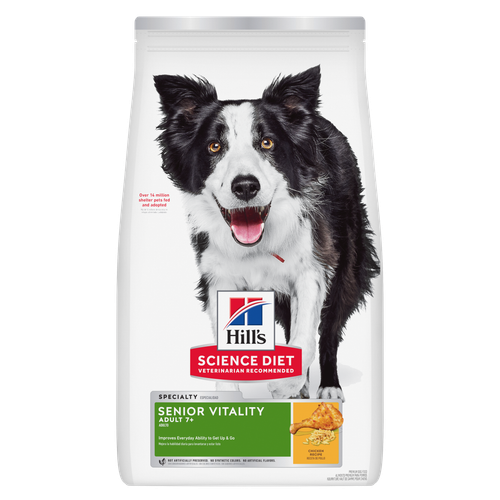
Improves Everyday Ability to Get Up & Go

Vital nutrients to support 5 essential building blocks for lifelong health

Vital nutrients to support 5 essential building blocks for lifelong health
Related articles
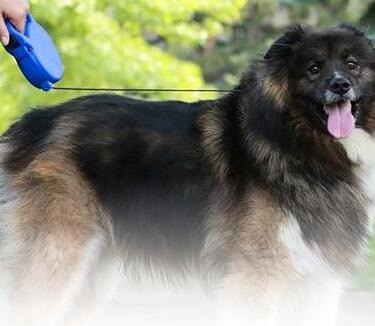
Discover fun and engaging games and other ways to help your dog exercise, keeping him happy and healthy.

Understand the role that Omega-6 and Omega-3 fatty acids play in your dog's overall health, and how you can ensure they are getting enough.

Learn how to stop your dog from begging at the dinner table, and understand how it can help contribute to his health.

Learn basic steps & precautions for treating a cut on your dog, including what you can put on the cut, and when you should take them to the vet.

Put your dog on a diet without them knowing
Our low calorie formula helps you control your dog's weight. It's packed with high-quality protein for building lean muscles, and made with purposeful ingredients for a flavorful, nutritious meal. Clinically proven antioxidants, Vitamin C+E, help promote a healthy immune system.
Put your dog on a diet without them knowing
Our low calorie formula helps you control your dog's weight. It's packed with high-quality protein for building lean muscles, and made with purposeful ingredients for a flavorful, nutritious meal. Clinically proven antioxidants, Vitamin C+E, help promote a healthy immune system.

